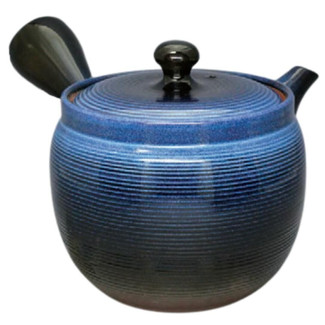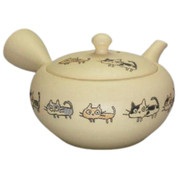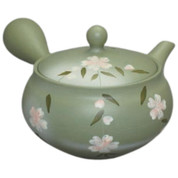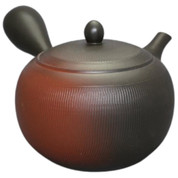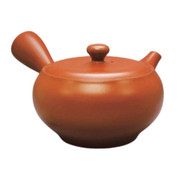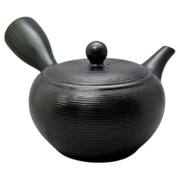- Home
- TEAWARE
- Teapot Kyusu
- Teapot Kyusu Tokoname - AKIRA - Blue - 600 ml cc - Stainless Mesh - Namako Glaze
Teapot Kyusu Tokoname - AKIRA - Blue - 600 ml cc - Stainless Mesh - Namako Glaze
- PRICE:
- $79.82
- SKU:
- K_2209_0908_4
- Availability:
- We will ship within 3-5 days after receiving cleared payment.
- Shipping:
- Calculated at checkout
| Shipping: | Standard Int'l Shipping(2-7 days) Item location: Chuo-ku, Tokyo, Japan |
|---|---|
| Delivery: |
Seller ships within 3-5 days after receiving cleared payment. |
| Payments: |

|
| Returns: | Please refer the return policy in detail. |
Product Description
** This item is made hand so it may have a little difference in color and drape. It may take time (a few weeks) from your order to shipping. Your understanding is greatly appreciated.**
--------------------------------------------
TOKONAME-YAKI : Ceramic / Pottery
Tokoname yaki is counted as one of Japan's six old kilns.
The production of tokoname ware dates back to the Heian period (794-1185). Back then, tokoname yaki was used for Buddhist related purposes. When the practice of tea ceremony spread in the Muromachi period (1338-1573), tea related products such as tea bowls and flower vases were made. In the Edo period (1600-1868), wares for everyday use were made in addition to tea wares. In the later years, pipes, tiles, and even toilets were made. The wide range of products is a result of the flexibility in the tokoname artist, producing wares to meet the needs of people in each point of the history.
c The special feature of tokoname yaki is the red clay (shudei). Clay is mixed with iron oxide without the use of glaze. This iron results in the red color distinct to tokoname yaki. It is said that the more you use the ware, the more the surface of the ware shine. Although the red clay tokoname yaki is the representative ware today, it first appeared in the late nineteenth to twentieth century, a relatively new ware.
There are two types of tokoname yaki: ware with smooth surface (often seen in kyusu) and ware with earthy, rough texture (jar or vase) made with clay found in the Tokoname region that contains more iron.
Tokoname wares are mostly unglazed. But green colored tokoname ware may be found at times. This green color is a result of melted ashes that stick to the pottery in the kiln and became glaze. This type of glaze is referred to as shizen-yuyaku, or natural glaze.
KYUSU: Japanese Tea Pot
The word for a Japanese tea pot. The most common form is a yokode kyusu, in which a handle protrudes straight out of the side of the pot. Traditionally this makes it easy to pour for a guest sitting directly in front of you (as you would in a traditional Japanese tatami mat room), and in quick, intermittent bursts allowing the tea to mix inside the pot.
PRODUCT INFO
PRODUCER (Artist)
- AKIRA
DESIGN
- Namako Glaze
STYLE
- Tokoname ware (Aichi Prefecutre)
MATERIAL
- Ceramic / Pottery
MESH TYPE
-Stainless Mesh
VOLUME
- 20 oz (600 ml / cc)
BOX
- NO
CAUTION
- We recommend wash it with water (hand wash) when washing it.
- Please do not use any chemical detergent or automatic dishwasher.
- Do not use a metal sponge (scrubbing brush).
- Do not use a direct fire.
- Please handle with care as it’s fragile. (If it is damaged, it cannot be repaired.)

